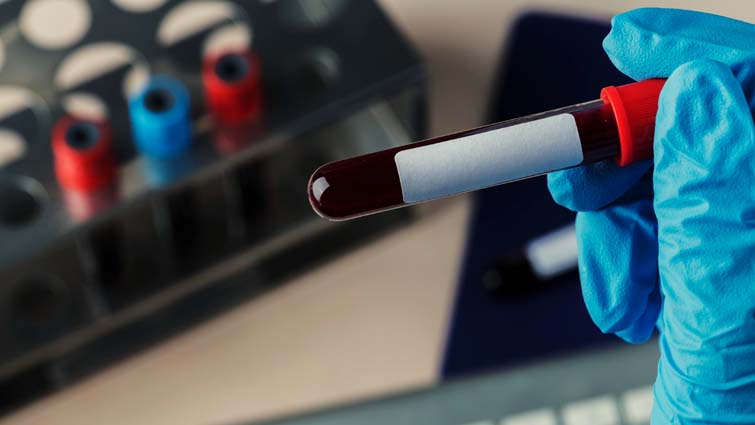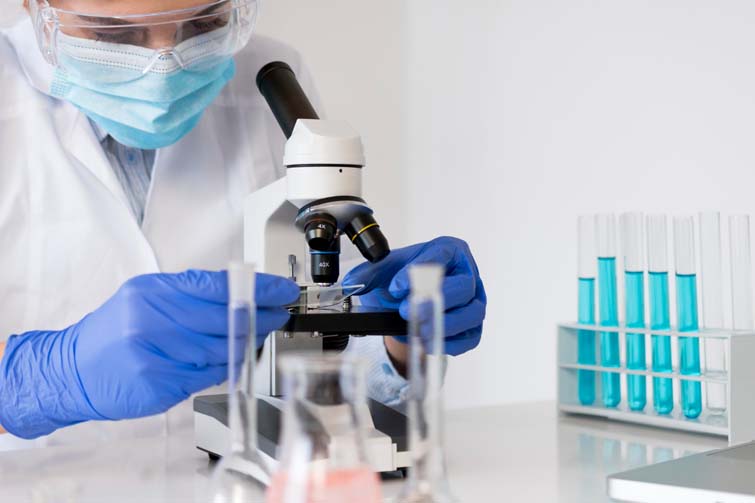
Maintaining good health is paramount; one of the most effective ways to achieve this is through regular blood tests. These tests provide invaluable insights into our overall well-being, helping identify potential health issues early on and enabling us to take proactive measures like going to urgent care in Bridgeport, CT.
Urgent care centers in Bridgeport, CT, are increasingly emphasizing the significance of these essential blood tests to ensure the well-being of their patients. See these different types of blood tests, their relevance, and how they contribute to maintaining optimal health.
The Complete Blood Count (CBC) is a standard blood test that provides critical information about the various components present in your blood. It is a routine analysis often requested by healthcare providers for urgent care in Bridgeport, CT, to gain insights into your overall health and detect potential medical issues.
The CBC measures the number of red blood cells, white blood cells, and platelets in your blood and assesses the levels of hemoglobin and hematocrit. Each component is crucial to your body’s functioning and well-being to see if you need urgent care in Bridgeport, CT.
The CBC is a versatile test that can reveal several health conditions, enabling timely intervention and treatment for urgent care in Bridgeport, CT. Some of the common conditions detected through CBC results include:

The Lipid Profile test is a comprehensive blood test designed for urgent care in Bridgeport, CT, to assess the levels of different lipids or fats in your blood. This test provides vital information about cholesterol levels, including high-density lipoprotein (HDL), low-density lipoprotein (LDL), and total cholesterol.
Additionally, it measures triglycerides, another type of lipid-associated with heart health. The Lipid Profile test is an essential tool healthcare providers use to evaluate the risk of heart disease and other cardiovascular conditions for urgent care in Bridgeport, CT.
The Lipid Profile test is a powerful predictor of heart health for urgent care in Bridgeport, CT. Elevated LDL cholesterol and triglyceride levels and low HDL cholesterol levels significantly increase the risk of atherosclerosis, heart attacks, and strokes. Atherosclerosis occurs when cholesterol and other substances form plaques within the arteries, restricting blood flow and potentially leading to cardiovascular events.
Monitoring lipid levels through the Lipid Profile test allows healthcare providers at urgent care facilities in Bridgeport, CT, to accurately assess an individual’s heart disease risk. Early identification of abnormal lipid levels empowers patients to take proactive measures to prevent or manage heart-related conditions.
Monitoring blood glucose levels is paramount for maintaining overall health and preventing serious medical complications. Blood glucose, also known as blood sugar, refers to the amount of glucose in the bloodstream.
Glucose is the primary energy source for the body’s cells, and proper regulation is essential for various bodily functions. Regular blood glucose testing is especially crucial for individuals at risk of or living with diabetes, as it helps to identify fluctuations in blood sugar levels and supports effective disease management through urgent care in Bridgeport, CT.
The link between blood glucose and diabetes is closely intertwined in urgent care in Bridgeport, CT. Diabetes is a chronic condition characterized by high blood glucose levels resulting from the body’s inability to produce enough insulin (Type 1 diabetes) or effectively utilize insulin (Type 2 diabetes). Insulin is a hormone produced by the pancreas that regulates blood glucose levels by facilitating the entry of glucose into cells for energy.
In individuals with diabetes, the inability to control blood glucose can lead to hyperglycemia (high blood sugar) and a range of health issues that need urgent care in Bridgeport, CT. Chronic hyperglycemia can damage blood vessels, nerves, and organs, increasing the risk of cardiovascular disease, kidney problems, nerve damage, and vision impairment.

Liver Function Tests (LFTs) are a group of blood tests designed to assess the health and functionality of the liver for urgent care in Bridgeport, CT. The liver is a vital organ responsible for numerous essential functions, including metabolizing nutrients, detoxifying harmful substances, and producing bile necessary for digestion.
LFTs play a crucial role in detecting liver diseases and monitoring liver health. Healthcare providers at urgent care in Bridgeport, CT, frequently recommend LFTs for routine check-ups and to evaluate liver function in patients with symptoms of liver disorders.
Liver function can be affected by various factors and medical conditions that need urgent care in Bridgeport, CT:

Kidney Function Tests are crucial for assessing the health and performance of the kidneys, which play a vital role in filtering waste products and excess fluids from the bloodstream. These tests help identify early signs of kidney dysfunction and aid in diagnosing kidney-related conditions for urgent care in Bridgeport, CT.
At urgent care in Bridgeport, CT, healthcare providers often recommend kidney function tests as part of routine health check-ups, especially for individuals with risk factors for kidney disease.
Kidney function tests are instrumental in detecting and diagnosing various kidney-related disorders, which are helpful in urgent care in Bridgeport, CT:

C-Reactive Protein (CRP) is a protein produced by the liver in response to inflammation in the body. Inflammation is a natural immune response that occurs when the body encounters injury, infection, or tissue damage, which may require urgent care in Bridgeport, CT.
However, chronic inflammation can be harmful and is associated with various health conditions, including cardiovascular diseases, autoimmune disorders, and certain cancers. The CRP test measures the level of CRP in the blood and serves as a valuable marker to gauge the presence and intensity of inflammation in the body.
CRP levels are closely linked to cardiovascular health for urgent care in Bridgeport, CT. Elevated CRP levels indicate a higher risk of developing heart diseases, such as atherosclerosis, heart attacks, and strokes. Chronic inflammation can damage blood vessels, leading to the accumulation of plaque and narrowing of arteries.
The CRP test serves as an important predictor of cardiovascular risk, enabling healthcare providers at urgent care in Bridgeport, CT, to identify individuals who may benefit from targeted preventive measures to safeguard heart health.
In addition to its connection with cardiovascular health, CRP levels are associated with various other health conditions that need urgent care in Bridgeport, CT:
The Hemoglobin A1c (HbA1c) test is a vital tool in diabetes management and urgent care in Bridgeport, CT. Hemoglobin is a protein in red blood cells that binds to glucose. HbA1c reflects the average blood glucose levels over the past two to three months, offering a long-term view of how well an individual’s diabetes is controlled. This test is invaluable in guiding treatment decisions and lifestyle modifications for people with diabetes, ensuring better health outcomes.
As glucose circulates in the bloodstream, it binds to hemoglobin. The higher the blood glucose levels, the more glucose binds to hemoglobin, leading to elevated HbA1c levels. By measuring HbA1c, healthcare providers for urgent care in Bridgeport, CT, can assess the effectiveness of diabetes management over an extended period, irrespective of daily fluctuations in blood glucose.
The target HbA1c levels for diabetics depend on various factors, including age, overall health, and diabetes type. Generally, lower HbA1c levels (typically below 7%) are recommended for most adults with diabetes, as they indicate better blood glucose control and reduced risk of complications.
Urgent care in Bridgeport, CT, plays a pivotal role in helping diabetics achieve better blood glucose management through various strategies:

Iron is an essential mineral that plays a crucial role in various bodily functions. One of its primary functions is to form hemoglobin, the protein in red blood cells responsible for transporting oxygen from the lungs to tissues throughout the body.
Additionally, iron is involved in the production of myoglobin, a protein that stores oxygen in muscles, and it is a key component of various enzymes that support metabolic processes. For urgent care in Bridgeport, CT, adequate iron levels are essential for maintaining energy levels, cognitive function, and overall well-being.
Iron deficiency anemia is a condition that occurs when there is insufficient iron to produce enough hemoglobin for red blood cells. This leads to decreased oxygen-carrying capacity in the blood, resulting in various symptoms that need urgent care in Bridgeport, CT:
Understanding and monitoring essential blood tests is crucial for maintaining optimal health and preventing potential medical complications. At DOCS Urgent Care & Primary Care – Bridgeport, we recognize the importance of these blood tests in providing comprehensive healthcare to our community. Our compassionate healthcare professionals are equipped with state-of-the-art facilities to perform these essential tests accurately and efficiently. Contact us today for your blood tests!

During this surge in COVID-19 cases, our primary focus is meeting the high demand for tests, and we are seeing higher than usual wait times. This means we are unable to answer most phone calls. Please know that our teams are working very hard during this time to care for as many patients as safely as possible. Please click the button below for answers to common questions. We appreciate your understanding.